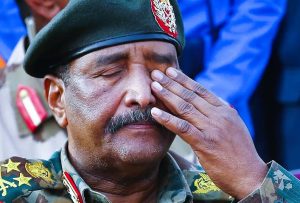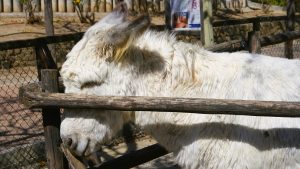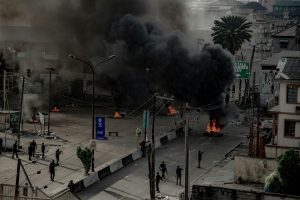At least 69 dead after boat sinks in Morocco waters
3 min readAt least 69 people, including 25 from Mali, have died after a boat carrying migrants capsized off the coast of Morocco. The boat, which was headed for Spain from West Africa, was carrying around 80 people when the tragedy occurred. Only 11 survivors were rescued, with nine of them hailing from Mali, according to the Ministry of Malians Abroad. The incident, which took place last week, was confirmed by the ministry on Thursday.
In response to the disaster, Mali has sent a crisis unit to monitor the situation. The country has been facing ongoing challenges, including violent jihadist insurgencies and separatist conflicts, which have resulted in multiple military coups, most recently in 2021. Despite the junta’s promises to hold elections by March 2024 and return to civilian rule, the situation remains unstable. The violence in the north and east of the country, combined with the effects of climate change on agriculture and widespread unemployment, has driven many to seek better opportunities abroad, especially in Europe.
The boat disaster highlights the perilous journey many migrants undertake in search of a better life. This route from West Africa to Spain is considered one of the most dangerous migration paths in the world. Migrants fleeing poverty, conflict, and instability often risk their lives in overcrowded and unsafe vessels. According to the Spanish rights organization Caminando Fronteras, more than 10,000 people have died this year attempting to reach Spain by sea. This statistic underscores the deadly nature of the journey, with an average of 30 deaths reported each day.
The journey from the Atlantic coasts of Mauritania and Morocco to Spain is a hazardous one, with migrants facing not only overcrowded and poorly maintained boats but also the dangers of the sea, unpredictable weather conditions, and the threat of being intercepted by authorities. Morocco lies just 14 kilometers (8 nautical miles) from Spain at its closest point, making the Spanish coast a common destination for those trying to escape harsh conditions in their home countries.
The boat tragedy also highlights the broader issues of migration across the Mediterranean and Atlantic. Many of the people making this dangerous crossing come from sub-Saharan Africa, fleeing years of conflict, economic hardship, and environmental degradation. The dire circumstances in countries like Mali push thousands to take extreme risks in the hopes of reaching Europe, where they believe they can find safety and opportunities to build a better future.
In the case of Mali, years of instability and violence, coupled with environmental factors such as desertification and drought, have worsened the economic situation, particularly in the north and east of the country. As a result, many young people from Mali and other parts of West Africa see migration as one of the few options for a better life. However, this journey is fraught with danger, as evidenced by the tragedy off the Moroccan coast.
The international community has called for greater efforts to protect migrants and address the root causes of migration, including poverty, conflict, and climate change. While many governments have focused on border control and preventing irregular migration, advocacy groups argue that more needs to be done to address the underlying factors driving people to risk their lives on such dangerous journeys.
The boat sinking off Morocco is a tragic reminder of the high human cost of migration and the dangers that many people face in their search for a better life. With so many lives lost and many others at risk, it is clear that urgent action is needed to provide safer alternatives and to address the root causes of migration that push people to undertake such perilous journeys.





